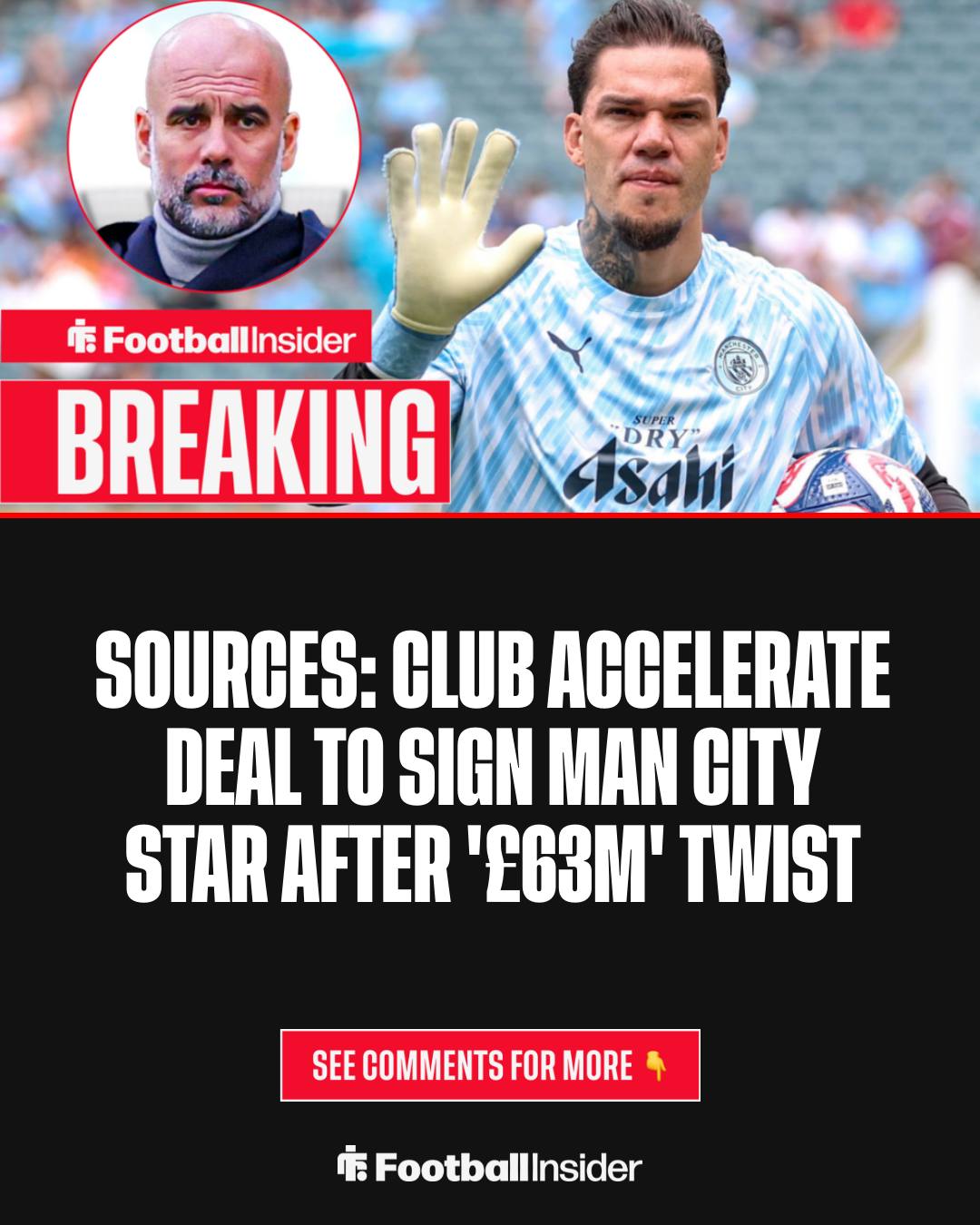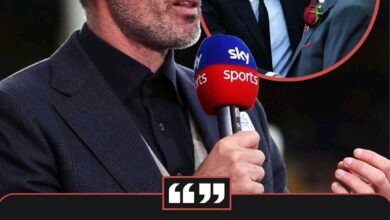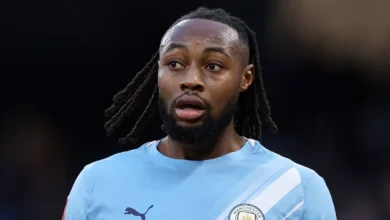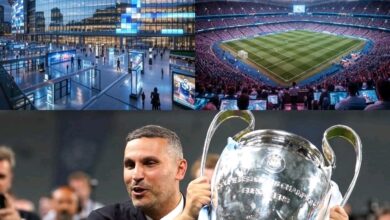Premier League Transfer Roundup: Late Summer Developments

The final weeks of the summer transfer window have brought a flurry of activity across the Premier League, with several high-profile moves and potential deals dominating headlines. From goalkeeping sagas to attacking reinforcements, the transfer market continues to evolve as clubs scramble to finalize their squads before the window closes. This comprehensive roundup examines the key developments involving some of the Premier League’s biggest names and most intriguing transfer stories.
The Ederson Saga: Galatasaray’s Persistent Pursuit
Manchester City’s Brazilian goalkeeper Ederson has found himself at the center of one of the window’s most compelling transfer narratives. The 32-year-old shot-stopper, who has been a cornerstone of City’s success in recent years, appears increasingly likely to depart the Etihad Stadium, with Turkish giants Galatasaray emerging as the frontrunners for his signature.
The situation has taken several twists and turns, beginning with Galatasaray’s initial interest in Porto’s Diogo Costa. The Turkish club had identified the Portuguese international as a potential marquee signing, but their pursuit hit a significant roadblock when Porto categorically rejected their approach. Sources close to the negotiations revealed that Galatasaray’s offer of approximately £17 million was deemed insufficient by Porto, who are demanding that Costa’s full £63 million release clause be met before they will even consider negotiations.
This setback has prompted Galatasaray to refocus their attention on their original target: Ederson. The Brazilian has been Manchester City’s first-choice goalkeeper for several seasons, but recent developments suggest his time at the club may be drawing to a close. The most telling sign of this shift has been the emergence of James Trafford as City’s starting goalkeeper in their opening Premier League fixtures, with Ederson relegated to bench duty despite his proven track record and experience.
Former Manchester United chief scout Mick Brown, speaking to Football Insider, revealed crucial insights into City’s position regarding Ederson’s future. According to Brown, Manchester City are prepared to sanction the goalkeeper’s departure, marking a significant shift in their stance. This revelation came as early as February, when Brown first indicated that Ederson would be allowed to leave at the season’s end, particularly if attractive offers from Saudi Pro League clubs materialized.
The financial implications of such a move are substantial for all parties involved. Ederson’s wages and transfer fee represent a significant investment for any potential suitor, while Manchester City would need to ensure they receive adequate compensation for a player who has been instrumental in their domestic and European successes. The goalkeeper’s contract situation and City’s willingness to sell suggest that they may have already identified potential replacements or are confident in Trafford’s ability to fill the void.
Galatasaray’s persistence in pursuing Ederson demonstrates their ambition to compete at the highest level both domestically and in European competitions. The Turkish Super Lig champions understand that acquiring a goalkeeper of Ederson’s caliber would significantly enhance their prospects in the Champions League and establish them as serious contenders for continental honors.
The negotiations between Galatasaray and Manchester City have reportedly intensified, with the Turkish club submitting formal bids for the Brazilian’s services. However, the exact financial details of these offers remain undisclosed, though they are believed to be substantially lower than what Porto demanded for Diogo Costa. This presents an interesting dynamic, as City will need to balance their desire to recoup a reasonable fee with their willingness to facilitate Ederson’s departure.
Jack Grealish’s Everton Renaissance: A Permanent Move on the Horizon?
While Ederson’s future remains uncertain, another Manchester City player has already made his temporary move, with Jack Grealish’s loan spell at Everton capturing significant attention. The England international’s situation represents one of the window’s most intriguing developments, offering insights into both player rehabilitation and financial pragmatism in modern football.
Grealish’s fall from grace at Manchester City has been well-documented. Once England’s most expensive player following his £100 million move from Aston Villa, the 29-year-old found himself increasingly marginalized under Pep Guardiola’s management. His playing time diminished significantly, and questions arose about his tactical fit within City’s intricate system. The loan move to Everton, therefore, represents both an opportunity for regular football and a chance to rebuild his reputation.
The early signs of Grealish’s Everton career have been promising. His home debut performance against Brighton showcased the qualities that made him such a coveted player, with two assists in a 2-0 victory demonstrating his ability to impact games positively. This performance has not only endeared him to the Everton faithful but has also sparked discussions about the possibility of making his move permanent.
The financial mechanics of a potential permanent deal reveal the complexities of modern football economics. Sources indicate that Grealish would be willing to accept a significant reduction in his wages to secure a permanent move to Goodison Park. This willingness to sacrifice financial rewards for regular playing time and career stability reflects the player’s maturity and understanding of his current situation.
Everton’s financial constraints mean they cannot currently afford Grealish’s full wages, with Manchester City contributing to his salary during the loan period. However, the presence of a £50 million option-to-buy clause in the loan agreement suggests that both clubs anticipated the possibility of a permanent transfer. This fee, while substantial for Everton’s current financial position, represents a significant discount on what Grealish might have commanded in his prime.
The age factor plays a crucial role in these considerations. Grealish will be 30 when his loan expires, making this potentially his last opportunity to secure a long-term contract at a Premier League club where he can be a regular starter. For Everton, investing in a proven Premier League performer, even at that age, could provide the experience and quality they need to establish themselves as a consistent top-half team.
David Moyes’s return to Everton has added another dimension to this story. The Scottish manager’s pragmatic approach and ability to get the best out of experienced players could prove ideal for maximizing Grealish’s contributions. Moyes has historically shown faith in players who may have been written off elsewhere, and his tactical flexibility could accommodate Grealish’s creative instincts.
The success of this loan arrangement could have broader implications for how top clubs manage their surplus players. Rather than simply allowing expensive assets to depreciate on the bench, structured loan deals with purchase options provide a pathway for player rehabilitation while maintaining some financial return for the parent club.
Defensive Dilemmas: The Tino Livramento Situation
Newcastle United’s Tino Livramento has emerged as one of the most coveted full-backs in the Premier League, with his performances continuing to attract admiring glances from Manchester City supporters and management alike. The 22-year-old’s display in Newcastle’s recent match against Liverpool served as a reminder of his exceptional talent and versatility, qualities that align perfectly with Pep Guardiola’s tactical preferences.
Livramento’s ability to operate effectively on both flanks makes him an attractive proposition for clubs seeking defensive versatility. His performance against Liverpool, where he played in an unfamiliar left-back role yet still managed to deliver a crucial assist for Bruno Guimaraes’s goal, demonstrated the adaptability that modern full-backs require. This versatility would be particularly valuable to Manchester City, where Guardiola often requires his full-backs to invert into midfield or provide width in attacking phases.
The statistical breakdown of Livramento’s Liverpool performance illustrates his all-around impact. Completing three of five dribbles, delivering two passes into the final third, and winning six of nine ground duels showcases a player comfortable in both defensive and offensive phases of the game. These numbers, while impressive in isolation, become even more significant when considered in the context of Newcastle’s overall tactical approach and the quality of opposition they faced.
Manchester City’s interest in Livramento is not new, having reportedly tracked him throughout the summer transfer window. However, their decision to offer Rico Lewis a new contract suggested they were content with their current options. Lewis, while talented, offers a different profile to Livramento. The English youngster excels in inverted roles and provides technical security, whereas Livramento brings pace, power, and direct attacking threat from wide areas.
The social media reaction from Manchester City fans following Livramento’s performance against Liverpool revealed the genuine desire among supporters to see him in City colors. Comments ranged from simple transfer requests to more analytical observations about his tactical fit within Guardiola’s system. This fan pressure, while not directly influential in transfer decisions, reflects a broader understanding of the player’s quality and potential impact.
Newcastle’s position regarding Livramento presents an interesting case study in modern football economics. The club has invested significantly in building a competitive squad under Eddie Howe, and losing key players would undermine these efforts. Livramento represents not just current value but future potential, making him almost impossible to replace adequately within the current transfer window.
The financial aspects of any potential Livramento deal would be complex. Newcastle would demand a premium for a player they consider essential to their tactical system, while Manchester City would need to balance the cost against their existing options and future needs. The late stage of the transfer window adds another layer of complexity, as Newcastle would have limited time to identify and secure a suitable replacement.
Football finance expert Stefan Borson’s assessment that Manchester City could still afford Livramento despite other commitments highlights the club’s continued financial strength. However, Financial Fair Play considerations and the need to manage squad harmony mean that any such move would require careful consideration of its broader implications.
Additional Transfer Developments
The transfer window has also seen movement in several other intriguing situations that deserve attention. Manuel Akanji’s situation at Manchester City exemplifies the challenges players face when caught between club ambitions and personal preferences. Despite reported interest from Galatasaray, the Swiss defender’s preference to remain under Guardiola’s tutelage reflects both his professional ambitions and the attractive proposition that Manchester City continues to represent for world-class players.
Akanji’s public dispute of claims regarding an agreed transfer to Galatasaray demonstrates the importance of accurate reporting in the modern transfer market. Social media and rapid news cycles can create momentum around deals that may not reflect the true situation, potentially complicating negotiations and affecting player relationships with their current clubs.
The defensive injury concerns at Manchester City, particularly regarding John Stones, make Akanji’s retention increasingly important. Guardiola’s tactical system relies heavily on the technical quality and positional intelligence of his center-backs, qualities that Akanji possesses in abundance. His ability to step into midfield when required and his pace in covering defensive transitions make him an integral part of City’s tactical framework.
Yves Bissouma’s potential move to Everton represents another example of how player behavior and professional standards can influence transfer activity. The Mali international’s reported disciplinary issues at Tottenham, including repeated lateness during pre-season, have apparently damaged his relationship with the club and opened the door for a potential departure.
Thomas Frank’s decision to omit Bissouma from Tottenham’s UEFA Super Cup squad against PSG sent a clear message about the standards expected at the club. This situation highlights the importance of professional conduct in maintaining career momentum and the potential consequences when these standards slip.
For Everton, Bissouma would represent an opportunity to add Champions League-experienced quality to their midfield options. His physical attributes and defensive capabilities could complement Everton’s tactical approach under David Moyes, though the financial implications of any deal would need careful consideration given the club’s ongoing financial constraints.
The broader pattern emerging from these transfer stories reflects several key themes in modern football. Player power continues to influence transfer activity, but clubs are increasingly willing to take strong stances on professional standards and tactical fit. Financial considerations remain paramount, but creative loan arrangements and structured deals are providing new pathways for player movement.
Looking Forward: Implications and Conclusions
As the transfer window enters its final phase, these developments will likely have lasting implications for the clubs and players involved. Manchester City’s apparent willingness to allow high-profile departures suggests confidence in their squad depth and academy production. The emergence of James Trafford and the continued development of Rico Lewis demonstrate the club’s ability to integrate young talent into their first-team setup.
For Galatasaray, successfully completing the Ederson transfer would represent a significant statement of intent in European football. The Turkish club’s persistence in pursuing top-tier talent reflects their ambition to compete consistently in the Champions League and establish themselves among Europe’s elite clubs.
Everton’s ability to attract and potentially retain players of Grealish’s caliber, even on reduced terms, suggests that regular playing time and project buy-in can sometimes outweigh pure financial considerations. This could become an increasingly important factor as Financial Fair Play regulations continue to restrict spending among elite clubs.
The Livramento situation at Newcastle highlights the challenges faced by ambitious clubs in retaining their best players. As Newcastle continues to establish themselves as a force in English football, they will face ongoing pressure to sell star players to clubs offering Champions League football and higher wages.
These transfer stories collectively illustrate the evolving nature of the football transfer market. Traditional power dynamics are shifting, with player preferences, financial regulations, and tactical considerations all playing increasingly important roles in determining where players move and when.
The success or failure of these potential moves will be measured not just in immediate impact but in long-term career trajectories and club development. For players like Grealish and Ederson, these moves represent opportunities to extend their careers at the highest level while maintaining regular competitive football. For clubs like Everton and Galatasaray, these signings could provide the quality and experience needed to achieve their respective ambitions.
As the transfer window draws to a close, these stories serve as reminders of football’s fundamental unpredictability and the complex web of factors that influence player movement in the modern game. The resolutions to these various situations will provide valuable insights into the current state of football economics and the evolving relationship between clubs, players, and their respective ambitions.















